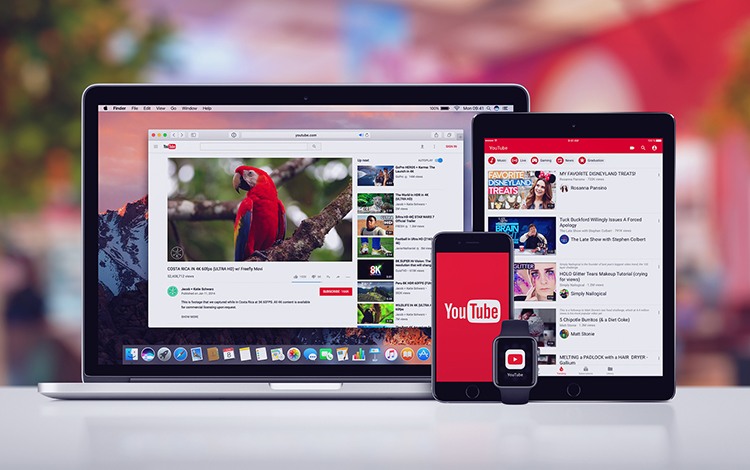Yes, you can trademark a username. If you are using the username to distinguish a product or service from a market competitor, you can apply for a registered trademark.
Going Deeper on Trademarking Usernames
You can apply for a trademark even if you are merely using the username to provide information or entertainment, which can be considered services by the United States Patent and Trademark Office (USPTO).
In order to register your username, it must be distinct and original enough to identify only one organization or individual’s products. The USPTO can decline an application for a generic or misleading username on those grounds. If you can secure a trademark for a username, the trademark will prevent other parties from impersonating you and misleading your consumers.Social media sites such as X (formerly Twitter) also offer recourse for the owners of trademarks, should someone attempt to misappropriate your trademark. These sites have inbuilt lines of communication designed to deal with the misuse of trademarks and copyrights, as this is one of the hottest issues in trademark law today.
Exclusive Rights and Legal Protections
By securing a Federal trademark registration, you gain exclusive rights to your username, preventing others from using it without permission. This provides you with significant legal protections against unauthorized use.
How do Social Media Sites Handle Trademarks?
Major social media sites like X, Facebook, Instagram, and other platforms all have their own unique policies on handling trademarks and using your trademark as it relates to usernames.
Instagram / Threads

Instagram spells out its stance as it relates to copyrights, trademarks, etc on Instagram and Threads spell out its stance regarding copyrights, trademarks, etc in its intellectual property help article. More specifically, they address the topic of trademarks and Instagram account names with the following:
Trademark violations may involve using a company or business name, logo or other trademark-protected materials in a manner that may mislead or confuse others with regard to its brand or business affiliation. (Emphasis added)
What is not a violation?
Using another’s trademark in a way that has nothing to do with the product or service for which the trademark was granted is not a violation of Threads and Instagram’s terms and conditions. Note that Instagram and Threads usernames are provided on a first-come, first-served basis and may not be reserved. (Source)
They are careful to point out that someone else may use your mark on their platform as a username if there is no attempt to confuse consumers. For example, a company that produces hard cider could have registered the username “apple”. As long as they aren’t posting about computer hardware, software, and accessories – it is unlikely Apple Computers would have a case to force them to give up the username on trademark grounds. If there is no confusion, there’s no infringement. As we’ll see with X, this can get problematic when it comes to an inactive Instagram username – since the page is inactive, there’s little to cause confusion.
If you feel like someone is using your existing mark in a way that would cause consumer confusion, you can submit a report of a trademark violation to Instagram here: https://help.instagram.com/222826637847963?helpref=faq_content
X (formerly Twitter)

X explains its trademark policy on this page. Like Instagram, they point out that someone may be using a mark in a way that is outside the scope of the registration (like our Apple example above.) They also provide information on the use of trademarks in X Ads here. Also relevant in this discussion is their stance on username squatting.
Username squatting is prohibited by the X Rules.
Please note that if an account has had no updates, no profile image, and there is no intent to mislead, it typically means there’s no name-squatting or impersonation. Note that we will not release squatted usernames except in cases of trademark infringement. If your report involves trademark infringement, please consult those policies for instructions for reporting these accounts.
Attempts to sell, buy, or solicit other forms of payment in exchange for usernames are also violations and may result in permanent account suspension. (Source)
This can make things tricky if someone has registered your mark or brand name, but not set up an account. X’s stance seems to be that if there is no confusion, there is no infringement – and if someone never sets the account up, there is no content that could provide confusion. Essentially, someone could register your mark as their username, never set the account up, and there may be little you can do since there’s little possibility for consumer confusion. On the bright side – if someone attempts to sell you the account, they may take action that could result in you controlling the username. If there are any violations, X will always give the user an opportunity to comply before account suspension.
As of January 10th, 2025, X has announced that they’re releasing profile labels for parody accounts to help increase transparency and distinguish those kinds of accounts from their platform (source).
However, X has said that they will not allow inauthentic activity on their account that undermines the integrity of X. They have a page on their site where they explain what is classed as inauthentic:
You may not engage in inauthentic activity that undermines the integrity of X.We want X to be a place where people have authentic experiences. To make that possible, we do not allow any activity that attempts to manipulate our platform or disrupt our services through inauthentic accounts, behaviors, or content.
Inauthentic Accounts
Accounts on X must be authentic. Under this policy, you may not create, operate, or mass-register accounts that are not legitimate, genuine, and transparent as to their source, identity, and popularity. This includes:
Unauthorized automation: Automated or scripted accounts that do not comply with our Developer Policy. Please note that as a user you are ultimately responsible for third-party applications you may authorize to access or use your account.
Fake personas: You may not use manufactured identities to engage in disruptive or deceptive behavior. This may include using stock, stolen or AI-generated profile photos, copied or stolen profile bios, and/or misleading profile information for the purpose of deceiving others.
Impersonation: You may not impersonate other identities of individuals, groups, or organizations to deceive others. Although you are not required to display your real identity on your profile, your account should not use false profile information to impersonate others. We allow compliant Parody, Commentary, and Fan (PCF) accounts on X only if the purpose is to discuss, satirize, or share information. If you believe an account is posing as you or your brand, you can file a report here. (Source)
You can report a trademark issue to X using this form: https://help.x.com/en/forms/ipi/trademark

Facebook provides extensive information on their stance as it relates to trademarks on this page: https://www.facebook.com/help/507663689427413 On the topic of usernames, they have a similar stance to Instagram and X:
Usernames are generally claimed on a first-come, first-served basis. This means that you may see a Facebook Page or profile with a username that includes your trademark.
While there may be cases where this type of use can be reported for trademark infringement based on the context of its use, please note that not every use of your trademark in a username is necessarily a trademark infringement. A word or phrase that is used in a different context may not violate your trademark. (Source)
If you feel someone is infringing on your mark, you can contact Facebook via this form: https://www.facebook.com/help/ipreporting/report/trademark
YouTube

Youtube provides resources for content creators to file copyright complaints, as well as YouTube provides resources for content creators to file copyright complaints, as well as respond to copyright strikes on their YouTube account.
- Submit a Copyright Removal Request
- Submit a Copyright Counter Notification
- Copyright Strike Basics
- Retract a Copyright Removal Request
- Dispute a Content ID Claim
You can read more on YouTube’s stance on copyright, as well as the benefits of trademarking your channel name in our article “Can I Trademark a YouTube Channel?“.
Resources for Policing and Enforcing Trademark Rights on Social Media
Policing Trademarks In A Social Media World
Tom Kulik wrote a great piece on policing your marks. This piece in particular stands out as something we all need to be aware of:
Gone are the days where a brand owner can simply send a strongly worded cease u0026amp; desist (“Cu0026amp;D”) letter to an offending user – nowadays, it is not uncommon for a trademark owner to see its demands disseminated online as part of the rant of the recipient. In some cases, I have even seen a copy of the brand owner’s Cu0026amp;D letter posted verbatim on social media accounts in an effort to demonstrate how inflexible and “mean” they are for even doing so. Frustrating? From a brand owner’s perspective, absolutely. Fair? Not really, but this is the reality of the online world today, and something that must be addressed in the proper context by all trademark owners policing their brands online.
Read the full article here.
That’s My Mark! Enforcing Trademark Rights on Social Media
Andrea Shannon created a helpful article that summarized the problem very well:
Pursuing the usual enforcement techniques can be difficult on social media, particularly when the identity of the infringer is unclear or unknown. The good news for brand owners is that most social media websites prohibit the infringement of another’s intellectual property rights in their terms of service.
Read the full article here.
Registering and Protecting your Trademark
If you are uncertain whether your activities on social media will qualify as a service in the USPTO’s eyes, you should contact our associates so that they may evaluate the strength of your potential application for trademark registration. Our trademark lawyers will guide you through the entire process to ensure your business entity secures all necessary legal protections. We’ll work with you through the simple five-step process to secure your trademark.
Protecting Your Brand and Common Law Rights
In addition to Federal trademark registration, it’s important to understand your common law rights. These rights provide trademark protection for goods or services based on the use of the mark in commerce, even without formal registration.
Experienced Trademark Attorney for Legal Action and Filing
Engaging an experienced trademark attorney is crucial for navigating the complexities of trademark law. If you believe your trademark rights are being infringed upon, our attorneys can assist in filing the necessary legal actions to protect your brand.
Customer Protection
Protecting your trademark is not just about securing your brand but also about ensuring your customers are not misled by counterfeit or infringing activities. Proper trademark enforcement helps maintain your brand’s integrity and trust with your customer base.
Contact Us
If you need help with the trademark application process, or if you have any questions about protecting your trademarks on social media platforms, please email us or call our office. Our trademark lawyers are here to assist you and talk you through your options.

